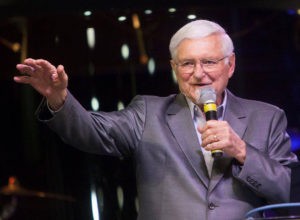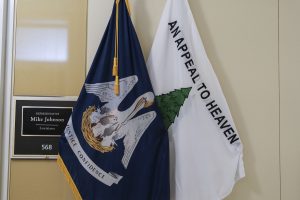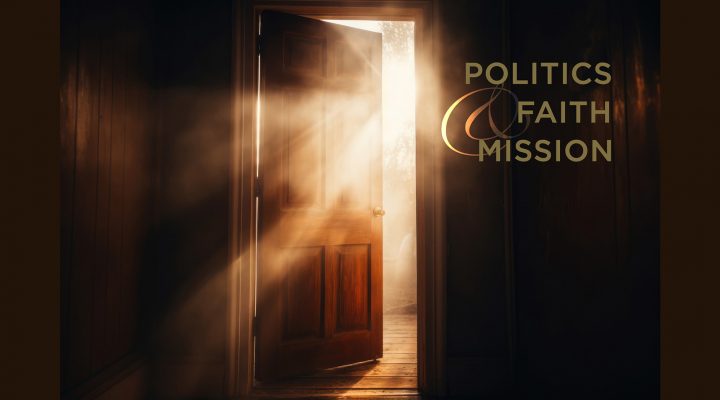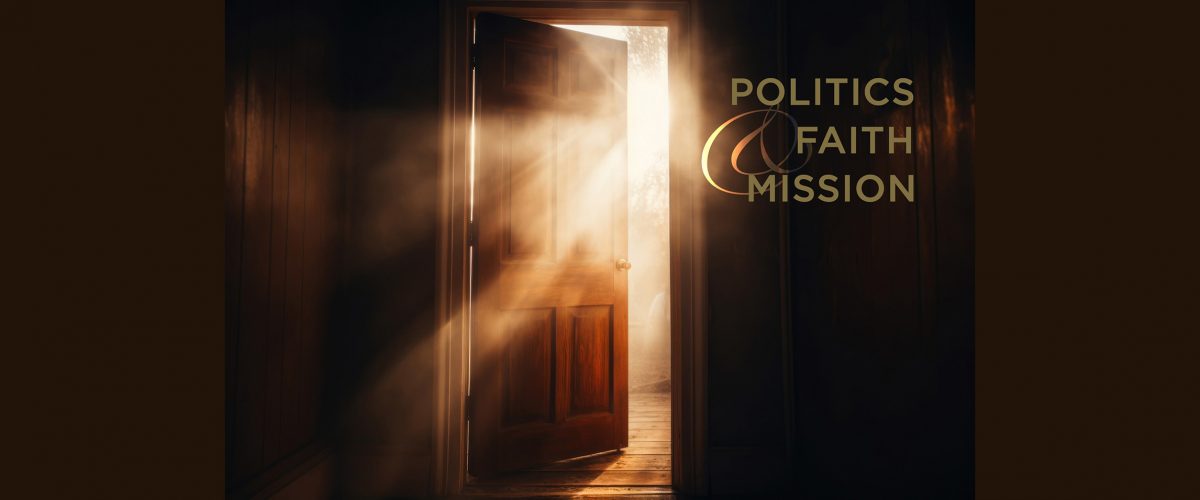Matthew D. Taylor is author of The Violent Take It by Force: The Christian Movement that Is Threatening Our Democracy, a brilliant and deep dive into the world of charismatic American Christians who planted the seeds for January 6 and who continue to elevate Donald Trump as a leader God has chosen and rescued who will establish their vision of a Christian America. Matthew studies independent charismatic Christianity and Christian nationalism and is a Senior Scholar at the Institute for Islamic, Christian and Jewish Studies in Baltimore. I am truly grateful for his work shining a light on some areas of American Christian life that have been overlooked by those focusing on evangelical denominations and trust this conversation will be illuminating for you.
Greg Garrett: Many of the most powerful books I’ve read of late about religion and politics come from folks who are now or have been on their own personal faith journeys. Can you talk a bit about how and why you decided to write this book and tell my readers a bit about how your life and your research intersect?
Matthew D. Taylor: Well, I certainly wasn’t looking to write this book. I grew up evangelical in Southern California, and I even did college ministry with a parachurch organization for seven years after college. But then I became fascinated with interfaith dialogue, especially with Muslims.
I found I couldn’t call myself evangelical anymore, so I became a Mainline Protestant. And I moved cross-country to do my Ph.D. in religious studies and Muslim-Christian relations at Georgetown in Washington, D.C. Now I’m a scholar at an interreligious dialogue institute in Baltimore. My first book was about Salafi Muslims (so-called “Radical Islam”), and it tells the hopeful story of how the Salafi community became integrated into the fabric of American pluralism after 9/11.

Matthew Taylor
But the events of January 6 shook me to my core. Watching evangelical leaders, symbols, songs and Bible references employed to bolster an attempt to overthrow our democracy felt to me like what I’ve heard my Muslim friends describe about their experience on 9/11.
So I started digging, using my background, contacts and modern-religious-movement-oriented research skills to find who were the leaders and what was the theology behind these Christian expressions at the Capitol riot. I was shocked to find a story that both intersected with my own journey at several crucial junctions, but also a story that has never been fully told or explored — the story of the New Apostolic Reformation and the radicalization of nondenominational, charismatic Protestantism. So that became the book.
GG: One of the great gifts of your book is that it helps explain some of the more difficult details about American Christians and their embrace of Donald Trump. Many of my readers are familiar with denominational figures like Robert Jeffress in Dallas. Could you introduce them to some of the figures in your book you see as central to the charismatic embrace of political power?
MDT: Yes, these leaders are less Billy Graham, Jerry Falwell or James Dobson and more a bizarre mix of William Jennings Bryan, Jimmy Swaggart and Father Coughlin. These are the fringe characters who’ve moved from the margins to the center of American evangelicalism and American Christian nationalism in the Trump Era.
In my book, I profile seven of these leaders who have been some of Donald Trump’s most forward-leaning Christian boosters and who were each instrumental to what transpired on January 6.
“Wagner is, in truth, the central character of my book, the godfather who set this whole drama in motion.”
I introduce Paula White and Cindy Jacobs, two women who’ve been strikingly empowered by charismatic openness to female leadership and who’ve proved themselves savvy, world-class leaders, but then they both became attached to Donald Trump for varying reasons. I look at C. Peter Wagner, renegade seminary professor and founding father of the New Apostolic Reformation. Wagner is, in truth, the central character of my book, the godfather who set this whole drama in motion.
I try to understand Sean Feucht, an upstart worship troubadour who’s become a top-flight, far-right provocateur. I help you get to know Ché Ahn, Lance Wallnau and Dutch Sheets, disciples of Wagner’s who’ve taken his program in far more radical directions than their mentor, each of them being present in Washington, D.C., in some form on January 6.
Along the way, I’m also introducing the distinctive theologies these leaders have used to propel this movement and enshroud Donald Trump in a mystical aura of prophecy and propaganda.
GG: Because I grew up with relatives in the charismatic Christian world, I understand your argument that there is a sincerity of belief that accounts for much of the movement you outline in the book, but I suspect some of my readers aren’t familiar with the Seven Mountains concept, the Cyrus anointing or the Appeal to Heaven flag. What would you say are the most important signifiers or ideas for us to know about in order to properly reckon with the New Apostolic Reformation and the ways it is shaping religious and political discourse in the United States?

C. Peter Wagner
MDT: The NAR was a particular set of leadership networks established by C. Peter Wagner, but the ideas and influence of these NAR leaders now have spread to the furthest reaches of American Christianity. They’re not necessarily highly educated theologians, but they have an amazing ability to create catchy ideas and appealing Christian supremacist messages. You might almost think of them as viral meme-makers. At the core of NAR thought is a vision of Christian domination over society and the need to practice orchestrated spiritual warfare to bring about that domination.
The Seven Mountain Mandate was a concept, a prophecy first propagated by Lance Wallnau circa 2000 that became the underlying political theology of the NAR and millions of other charismatics around the world. The basic idea is that you divide society up into seven arenas of influence — the family, religion, government, education, arts and entertainment, media, commerce — and Christians are mandated (by God, no less) to conquer all those nonreligion mountains by claiming positions at the tops of those mountains. In effect, it’s sort of a model of trickle-down theocracy, in which the NAR insinuates its people into positions of great cultural power so as to transform the whole society.
Wallnau also gets some credit for the Cyrus Anointing framework. He met Donald Trump in the fall of 2015, just a few months into the campaign, and Wallnau claimed he received a prophecy that Trump was an “Isaiah 45 Cyrus.” Without fully unpacking that image, he was basically declaring Trump to be a sort of secular savior, an instrument in the hand of God to vindicate conservative Christianity and reinstate Christian privilege.
The Appeal to Heaven meme centers on a Revolutionary War flag that flew over the fledgling Massachusetts Navy. It’s a white flag with a green pine tree and the phrase “An Appeal to Heaven” across the top. Dutch Sheets discovered this flag in 2013 and believed it was a prophecy of the need for a new spiritual American revolution (Sheets loathed Obama and the Obama administration).

An “Appeal to Heaven” flag is seen outside of Speaker of the House Mike Johnson (R-LA) office on Capitol Hill on May 23, 2024. (Photo by Michael A. McCoy/Getty Images)
He launched a nationwide campaign to popularize this flag as a coded symbol of revolution. The flag itself functions as a sort of visual prayer to overthrow liberal tyranny and the separation of church and state. These flags were everywhere on January 6. It’s also being flown today outside the office of the speaker of the House, Mike Johnson, and Supreme Court Justice Samuel Alito flew one over his New Jersey beach house (he blamed it on his wife) for several weeks in the summer of 2023.
GG: You use the phrase “gauzy theological readings of American history,” an all-time classic, and you do try to critique these readings and to offer some alternatives. If you had to put together a short list of essential Christian teachings that push back against Christian nationalism and the movement you study, what would they be?
MDT: The most essential one is the character of Jesus. It doesn’t get much more essential than that. These folks seem almost unbelievably willing to jettison the Jesus of the Gospels, the compassionate servant, the dying God, the homespun rabbi who fled from every scepter and sword that was foisted upon him. They want a violent, spiteful, colonizing Jesus.
“The NAR stands in the tradition of the Crusades, the Inquisition, pogroms and Christianity-infused colonialism.”
As Christians, we need to proclaim the crucified, colonized God, the Incarnate Word who willingly emptied Godself. There’s a long backstory of Christian leaders who’ve chosen power over compassion, domination over gentleness, to imitate what Jesus derisively called “the Lords of the Gentiles” rather than to follow the self-emptying God. The NAR stands in the tradition (not in a direct but a thematic sense) of the Crusades, the Inquisition, pogroms and Christianity-infused colonialism. They have awakened a never-quite-dormant Christian supremacist impulse in many American Christians.
I also think we need to emphasize the value of tradition and attending to the wisdom we Christians have gained over the centuries. In this nondenominational charismatic space, leaders and institutions have the memories of goldfish, constantly being rebranded, repackaged and marketed in a new way. There’s amazing energy there, and I think that can be a good thing, but it needs to be tempered by the richness and depth of the tradition.
Part of why I believe they’re so quick to baptize their own will to power as a mandate from God is that they’ve never paused to reflect on how to reconcile their vision with Jesus’ prescribed cruciform life or how Christian domination has devastatingly played out over and over again in Christian history.
In American Christianity today, we need more of what G.K. Chesterton called the “democracy of the dead,” a willingness to learn from previous generations and let them inform our modern practices. Unanchored from church tradition, we can easily fall victim to the worst sorts of cooptation and bastardization of the message of Jesus.
GG: I can’t get the image of Donald Trump as televangelist out of my head now that you’ve written about it. Could you talk a bit about why Trump was attracted to this iteration of American Christianity and they were attracted to him?

Paula White
MDT: I’m not out to understand Trump’s inner world or assess his sincerity about religion and spirituality. He’s a cipher, and I’d guess there are so many cross-cutting influences and rationales ping-ponging around his head, that isolating one out in any given situation is probably a fool’s errand. He’s a man of instinct, and he has an instinct for preaching.
“Make America Great Again” is a fascinating mixture of national prosperity gospel with enough “American carnage” flavoring thrown in.
I recount in the book how Paula White, Trump’s closest spiritual adviser, describes being regaled by Trump with his evaluations of various televangelists: Jimmy Swaggart, Norman Vincent Peale. In fact, Trump grew up voluntarily attending Norman Vincent Peale’s — he of “the power of positive thinking” fame — church in New York. I think you can still hear Peale’s maxims and mental training seeping through when you hear Trump speak extemporaneously at his rallies.
Part of the reason these charismatic celebrities have resonated with and synchronized so easily with Trump is that his celebrity is made of a similar material as theirs. They’re spiritual entrepreneurs, having to sell themselves as miraculous, oracular, divinely chosen. Trump was born with a pinch runner on third base, but he’s fashioned himself as an entrepreneur and a reality TV star. He’s bone of their bone, flesh of their flesh. But they’ve also helped Trump develop a more religious register in his rhetoric, helping him step into this Dark Messiah, “I am your retribution” mode he inhabits today.
GG: Where are you finding joy and comfort in these times? What in your professional life or personal life is bringing you joy?
MDT: In my personal life, it’s definitely my family. We have young kids, and there’s nothing to pull your head out of the clouds like adjudicating silly fights and frantically packing lunches before the school bus arrives. I love seeing my kids grow up and try to figure out the world, its strangeness and beauty.
“I’m watching firsthand as big chunks of American Christianity become more maniacal and monstrous.”
In my professional life, I’m watching firsthand as big chunks of American Christianity become more maniacal and monstrous. The people I study are everywhere in the news right now, because they’re gearing up for this next chance to install Donald Trump as king of the government mountain. I’m talking daily to reporters who are trying to decipher this bizarre new landscape of far-right American Christianity that’s almost unrecognizable to how many of us thought about evangelicalism just a decade ago.
And I’m trying to sound the alarm on every platform or page I’m given: This is not just another ho-hum, Dems vs. Repubs election! This is the most consequential American election, at least since the election of 1860, in terms of setting the long-term trajectory of the United States.
Will we continue our imperfect, zigzagging, but forward-moving journey to become a multiracial, multireligious democracy, arguably the first in world history? Or will we allow a petty despot, a populist demagogue draped in messianic garb, to get back in office by hook or by crook?
This election also won’t be over in November. Just picture the end of 2020. That’s what’s coming up on us fast. So we need to get in a state of mind to defend our democracy — using the tools of democracy and nonviolence — against the autocratic ambitions of the disgraced, felonious former president.

Greg Garrett
Greg Garrett is an award-winning professor at Baylor University, where he is the Carole McDaniel Hanks Professor of Literature and Culture. One of America’s leading voices on religion and culture, he is the author of 30 books, most recently the novel Bastille Day and The Gospel According to James Baldwin: What America’s Great Prophet Can Teach Us about Life, Love, and Identity. He is currently administering a major research grant on racism from the Eula Mae and John Baugh Foundation and finishing a book on racist mythologies for Oxford University Press. Greg is a seminary-trained lay preacher in the Episcopal Church and Honorary Canon Theologian at the American Cathedral of the Holy Trinity in Paris. He lives in Austin with his wife, Jeanie, and their two daughters.
Related articles:
Matthew Taylor’s new book explores how ‘the fringe became the carpet’ | Analysis by Steve Rabey
NAR prophets still declaring Trump is God’s man, scholar warns
The New Apostolic Reformation drove the January 6 riots, so why was it overlooked by the House Select Committee? | Analysis by Rick Pidcock


